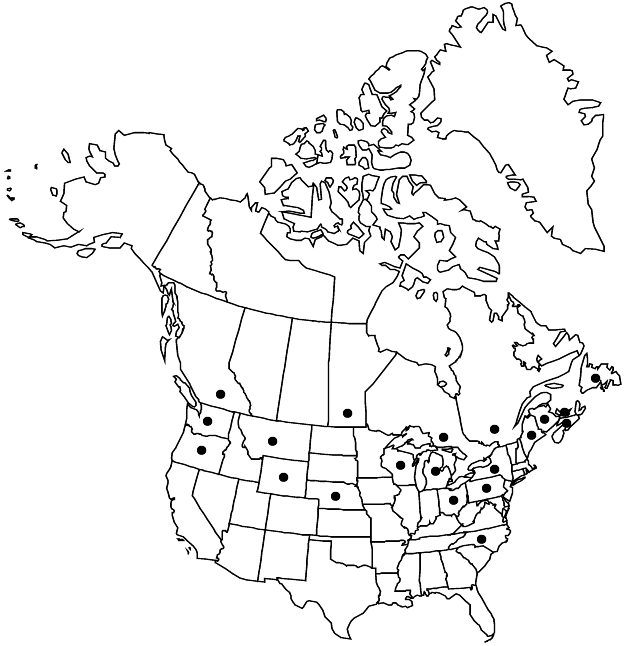Cerastium tomentosum
Sp. Pl. 1: 440. 1753.
Plants perennial, mat-forming, rhizomatous. Stems: flowering stems ascending, branched, 15–40 cm; nonflowering stems prostrate proximally, rooting readily, pubescence dense, white-tomentose, eglandular; small axillary tufts of leaves often present. Leaves not marcescent, sessile; blade linear to linear-lanceolate or linear-oblong, 10–60 × 2–8 mm, apex ± obtuse, pubescence dense, whitish-tomentose, eglandular on both surfaces. Inflorescences lax, 3–13-flowered cymes; bracts lanceolate, margins scarious, pubescent. Pedicels ascending, straight, 10–40 mm, 2–7 times as long as sepals, white-tomentose. Flowers 12–20 mm diam.; sepals narrowly lanceolate-elliptic, 5–7 mm, margins narrow, often scarious, apex acute, white-tomentose; petals obtriangular, 10–18 mm, 2–2.5 times as long as sepals, apex 2-fid; stamens 10; styles 5. Capsules cylindric, slightly curved, 10–15 mm, 1.5–2 times as long as sepals; teeth 10, erect, margins convolute. Seeds brown, ca. 1.5 mm, round tubercles on margins, faces shallowly rugose; testa not inflated. 2n = 72.
Phenology: Flowering spring.
Habitat: A commonly grown rock-garden and wall plant, often escaping onto roadsides, riverbanks, old fields
Elevation: 0-400 m
Distribution

Introduced; B.C., Man., N.B., Nfld. and Labr. (Nfld.), N.S., Ont., P.E.I., Que., Maine, Mich., Mont., Nebr., N.Y., N.C., Ohio, Oreg., Pa., Wash., Wis., Wyo., se Europe.
Discussion
Cerastium tomentosum hybridizes readily with the introduced C. arvense subsp. arvense (J. K. Morton 1973).
North American reports of Cerastium biebersteinii de Candolle all appear to be referable to C. tomentosum. The two species are very similar, but C. biebersteinii has flat capsule teeth and is diploid (2n = 36); see M. K. Khalaf and C. A. Stace (2001).
Selected References
None.